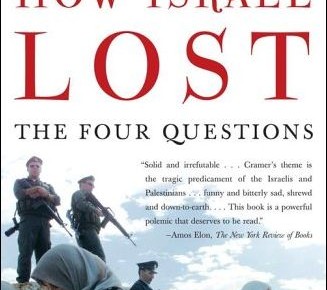
How Israel Lost: Flippant Book by Former Reporter Aims Darts at Israel
By Richard Ben Cramer Simon & Schuster, 2004
Richard Ben Cramer's latest book disappoints on all counts. Far from changing the boundaries of discussion, it contains neither an original thesis nor trenchant argument. Instead, the complexities of the Israeli-Palestinian situation are reduced to the hackneyed superficialities of Israel's detractors.
